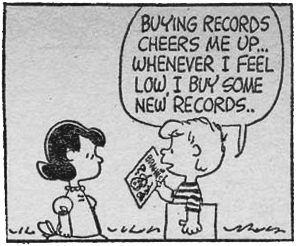 Word came out yesterday that the Apple Store has passed Wal-Mart as the top music retailer in the U.S. And it wasn't even close. In January, the Apple Store sold 19 percent, compared with Wal-Mart's 15 percent.
Word came out yesterday that the Apple Store has passed Wal-Mart as the top music retailer in the U.S. And it wasn't even close. In January, the Apple Store sold 19 percent, compared with Wal-Mart's 15 percent.As I see it, this ends the dominance of the physical music format. From Edison's cylinders to 78 RPM wax platters to vinyl to 8 tracks to cassettes to compact discs, music got successively more portable until the physical media went away. Now the physical stores are going away as well.
And I couldn't be happier.
Sure, I used to love record stores. As a kid, I had always shopped the record bins in supermarkets, drug stores and dime stores. But when I went to college in the mid-1970s, I discovered standalone record stores. My favorite was a place called Discount Records, a narrow store that had long aisles of U.S. and import records, along with free copies of music and humor magazines they couldn't sell.
The great part about Discount Records was, of course, the discounts. At the time, vinyl albums went for $5.99 apiece, but at Discount Records, new releases went for only $3.99. It was like hitting a treasure trove.
A few years later, the megastore came along. The first one in my city was Peaches, an Atlanta-based retailer. They opened an unbelievably large place, with giant hand-painted album covers displayed on the walls outside (if you've ever seen the movie Xanadu, you'll know what I mean).
Peaches had everything -- in huge quantity. The classical music room was separate, with its own door to keep rock from mixing with Rachmaninoff. One day they installed a big-screen projection TV and I saw my first music video: Meatloaf's "Paradise by the Dashboard Light." Unfortunately, Peaches put the little guys at Discount Records out of business.
The mall stores hung on by moving quickly to CDs after the format was introduced in the early '80s. Since they didn't have much space (certainly not as much as Peaches), the CD format was a godsend.
I wasn't a big fan of the CD, however. I stuck with vinyl until it gave out in 1989, and after that, moved to cassettes until the artists I was interested in moved completely to CD.
The record companies cleaned up on CDs. They were perceived as a "superior" format and priced accordingly. The problem was that the prices never really went down. Music that I purchased at Discount Records for $3.99 in 1975 was getting $19.99 in CD format. That's a 5X increase within about 15 years. I no longer had the cash reserves necessary to replenish my vinyl/cassette collection with the new-fangled CDs, so, as did most people of my generation, I just gave up on buying music.
The record stores didn't notice I was MIA. In fact, they seemed glad to get rid of me. Buying music at a record store was a terrible experience. The joke at the time was that the record store employees thought they were the rock stars.
I learned not to ask questions in a record store. They always seemed miffed that someone my age could actually require assistance. I wasn't someone they could try to impress. And they didn't have a clue as to why I could be interested in someone named Jethro Tull.
Actual conversation:
Salesboy: "I don't know who he is."
Me: "Who?"
Salesboy: "Jethro Tull."
Me: "He's not a he, he's an it."
Salesboy: "Who?"
Me: "Jethro Tull. It's a band, not a person."
Salesboy: "Like Van Halen?"
Me: "No. Van Halen's a he and an it."
Salesboy: "Huh?"
Me: "Van Halen's the last name of a couple of guys in the band and the name of the band."
Salesboy: "Like Camper Van Beethoven?"
Me: "Oh, forget it."
They were too busy selling CDs to the kiddies. So when the kids got on their computers and discovered Napster, the record labels lost them, too.
Now the record stores in the malls -- if you can still find an FYE, that is -- are all empty. Maybe there's someone looking at a DVD in the bargain rack, but nobody's there poring over the music. The CD aisles at Best Buy are barren. Same at Target and Borders and Barnes & Noble. At Circuit City... well, does anybody shop at Circuit City anymore?
At Wal-Mart, people still go in, finding sanitized versions of music they heard on a commercial or something. And even Wal-Mart's tiring of that business. For years Wal-Mart has directed the record labels to reduce the price of their CDs. And if the labels don't comply? Well, Wal-Mart infers that one of these days it just might go out of the CD-selling business entirely.
And if Wal-Mart goes, there goes the whole business of selling physical discs. The music labels surely can see the writing on the wall. It would be in their best interests to convert to companies similar in nature to BMI and ASCAP. Those companies control the publishing rights to music. The four music labels should convert to companies that control the performance rights to recorded music.
When that happens, there will be no need to keep the RIAA in business, so the lawsuits against stay-at-home-moms and college students will end. The giant corporations will spin off the record labels into tiny holding companies who will likely make deals with content amalgamators like Apple, the phone companies, the cable companies and the networks to distribute large chunks of their music catalogs for a fee.
And in 20 years, some kid will be asking why you have a closet full of little silver Frisbees.





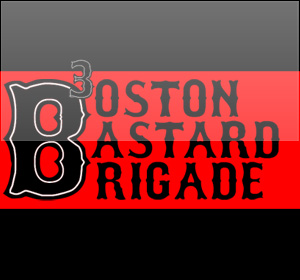
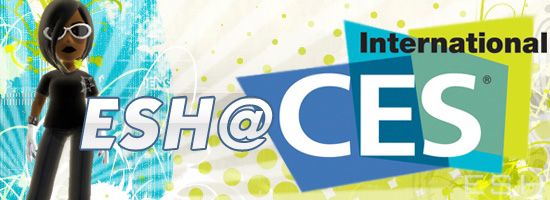



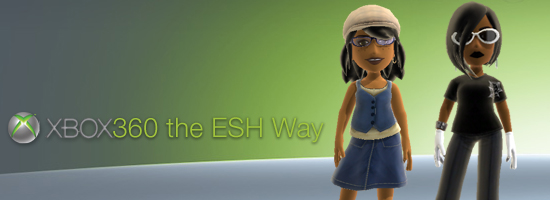

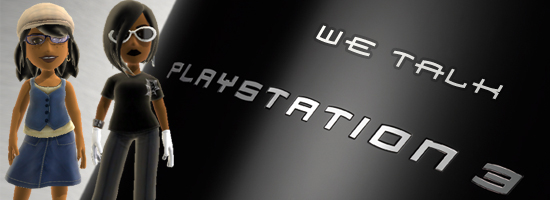







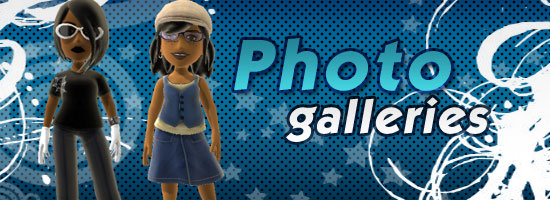







« Home